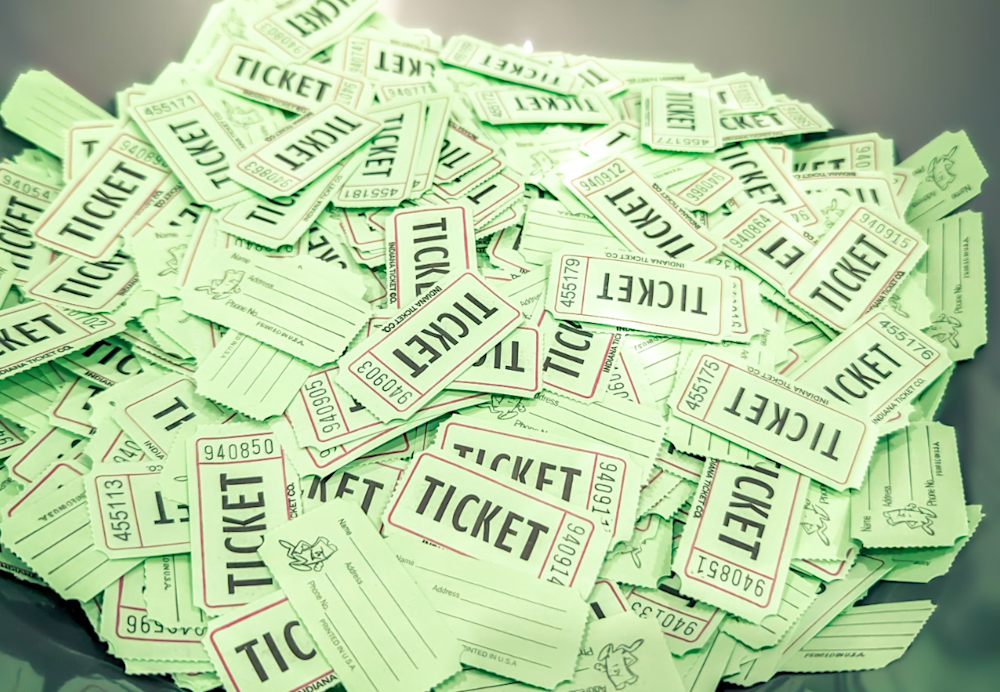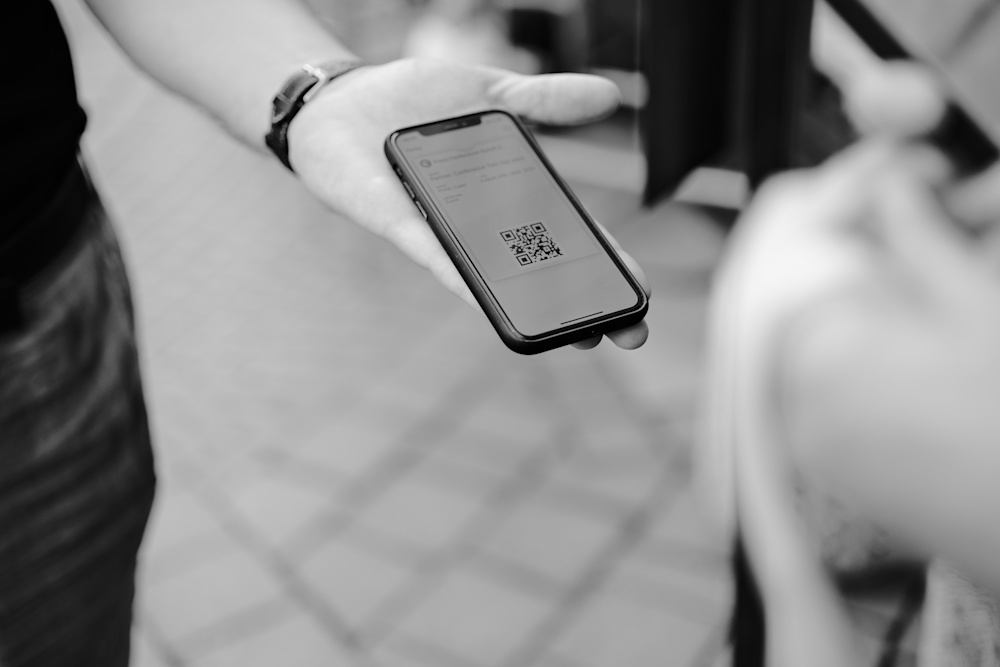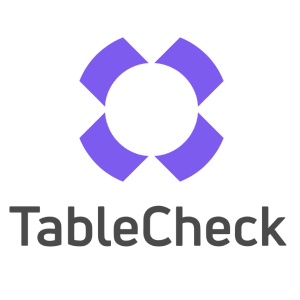Updated July 10, 2025
How to Buy Concert Tickets in Japan: A Crash Course [2025]
Concert ticketing in Japan can be confusing. Lotteries? Fan clubs? Convenience stores? If you want to snag a ticket to see your favorite artist, let this be your guide on how to buy tickets in Japan.
If you’re a huge fan of Japanese entertainment like me, then you might have a list of artists, sports teams, or plays that you want to see while you are studying or working here. But how do you find out about concerts and how does ticketing work?
In many countries, ticketing is done on big platforms like Ticketmaster. You wait in a queue and try to snag a seat first-come-first-served. But Japan is different: The ticketing for many shows is decided by lottery. And not just one lottery, many rounds of lotteries.
Since I don’t have a fast enough computer or strong enough nerves for regular point-and-click ticketing, I am a fan of the lottery system. But it comes with its own disadvantages too. I’ve failed to win tickets to see a band I have been wanting to check out for over a year…!
I will start with the basics of the system, major platforms, the lottery and the ticket issuing systems, before covering things like resale. In this article, I am going to assume you live here and have a Japanese phone number.
In this article: 📝
- How are concert tickets sold in Japan?
- Where do you buy tickets?
- How is ticketing in Japan different from other countries?
- So how do you buy a ticket on a Japanese playguide?
- How do you receive a ticket from a Japanese playguide?
- What if you can’t get a ticket in the lottery or general sale?
- Summary
How are concert tickets sold in Japan?
When I was in the U.S., I remember waiting in the Ticketmaster queue and frantically clicking around as the venue sold out in real time. But that isn’t how most ticketing is done in Japan. Before we go into how the system differs from other countries, here are some basic concepts:
The organizer is the producer of an event, like the artist’s management or record label. They choose a venue and outsource management of the ticketing to a playguide (pureigaido; プレイガイド) or “ticket agent” in English.
There are presales (senkou yoyaku; 先行予約) that are often decided by lottery (chuusen; 抽選), as well as general sales (ippan hanbai; 一般販売) that are first-come-first served (senchaku; 先着).
You can print (issues) tickets (chiketto hakken; チケット発券) at convenience store chains. Playguides used to send tickets to your house before the pandemic. But now, most playguides developed their own digital ticketing systems. These range from displaying tickets on their mobile website, to apps that link with your phone’s SIM card.
Payment for tickets is also often handled by a convenience store. You can register your credit card or other digital payment methods for automatic payments. There is an important difference between credit card and convenience store payment that I will cover later.

Where do you buy tickets?
The big three of Japanese “playguides” are:
・Ticket Pia (チケットぴあ)
Pia is one of the oldest playguides in Japan, and their business began in the 1970s with a physical magazine that was the source of concert, theater, and movie screening information. You can still pick up their free information magazine.
Their main partner is Seven-Eleven, but you can also pay for and buy tickets at FamilyMart. Pia’s digital ticket systems are called CLOAK and MOALA, and their streaming service is Pia Live Stream. Pia Corporation also owns venues like Pia Arena MM and Toyosu PIT.
・Lawson Ticket (ローソンチケット)
Also called lochike (ローチケ) or eruchike (Lチケ). As you might imagine, this playguide belongs to the convenience store chain Lawson. It is probably the most well-known by foreigners for being the sole ticketing agent for the Ghibli Museum in Tokyo.
You can also use the Loppi Machine to browse and buy tickets directly if the event is available. These days, some are only available online, though. If you see an “L Code” (Lコード) on the website, you can sometimes use that to look up the event or generate a QR code to scan.
・eplus (イープラス) or e+
The e stands for “entertainment!” The youngest of the big three, they centered their services online almost from the get-go. Their first convenience store partner was Seven-Eleven, but now it is common to see their line-up on FamilyMart storefronts. You can also buy their tickets on the FamilyPort multipurpose kiosk.
They have an entertainment information magazine called SPICE, and during the pandemic, they started a platform for streaming content called Streaming+. They also have their own app for their digital “smart tickets” (スマチケ).
There are many other playguides, like Rakuten Ticket by e-commerce giant Rakuten, ticketboard by advertising giant Dentsu, mu-mo ticket by record label Avex, Yahoo! PassMarket, and CN Playguide, just to name a few. Seven-Eleven even has their own playguide.
The big three are a great place to start for not only concerts, but museum and art exhibitions, plays and musicals, sporting events, and more.
Making an account and registering your favorite artists, interests, and location is a great way to start getting emails about events nearby. I get a bunch of emails every day. (Too many maybe.) They even do give-aways sometimes.
How is ticketing in Japan different from other countries?
So now that we have the basics down, let’s look at some of the unique elements of ticketing in Japan.
・Concert tickets are often sold by lottery, and you can’t pick your seat
This isn’t true of all concerts, but for popular events that would crash servers, there is a lottery system.
Let’s say you find a concert you want to go to. First, look at the ticketing schedule. Applications for a lottery will be held for one to three weeks, followed by a few days to a week of waiting until results.
Not all the seats are up for grabs at once. There may be several rounds of lotteries, depending on how the seats are divided up by the organizer. But as a general rule, seating sections are filled from the front to the back. The later the lottery, the further from the stage.
If the concert is handled by multiple playguides, their lottery schedules may be staggered.
The experience is a little more leisurely than scrambling when tickets for a whole venue are released all at once. However, waiting for the results can be stressful, and sometimes you are just out of luck if you don’t win.
The timing for when you find out your seat varies. Classical concerts and plays often allow you to buy immediately and choose your seats. But as an anti-scalping measure, you might not find out until a few hours before doors open for a pop concert.
(Though anywhere from one week to three weeks before is possible too.)
・Fan clubs are king
If you want to ensure that you snag that ticket close to the stage, then you need to join the fan club. It sounds a little silly if you aren’t used to it, but it is a part of the ticketing scheme in Japan.
Fan club members pay a fee to get access to the very first lottery. Sometimes VIP tickets can only be purchased if you are a member. There are other perks like exclusive video and photo content and advanced access to merchandise sales.
Sometimes there are also “light” versions of memberships. They could be “mobile fan clubs” or monthly rather than a yearly plan. You still get access to advanced lotteries, but after full members.
However, memberships can be expensive. The most I have paid for a yearly plan is 7,200 yen, but I recently saw an artist list theirs at a whopping 8,800. 5,000 is a good average, and mobile fan clubs can be as low as several 100 yen a month.
It’s up to you to decide if it is within your budget to pay an extra fee in exchange for a chance at better seats.
Just make sure to fill out your full name as it appears on your ID when registering. Fan club tickets, especially VIP ones, might require photo ID to get in. Don’t be like me, who registered my information way before anti-resale policies and had my name in katakana. (There is no government photo ID for foreigners with katakana on it!)
・Tickets (many times) can’t be canceled or refunded
This is probably the most confounding policy in Japanese ticketing. Once a ticket is paid for, you are stuck with it. You can only get a refund if the organizer cancels the event completely.
But if you can’t cancel a ticket, then what about resale…?
・Ticket resale is not only against the terms of service, but illegal
There is a long list of terms of service when you apply to a lottery or buy a ticket. One of them is agreeing to not resell the ticket, or “unauthorized resale.” This isn’t just the organizer asking nicely, there is actually a law.
The Act on Ensuring the Proper Distribution of Show and Event Tickets by Prohibiting the Unauthorized Resale of Specified Show and Event Tickets is an anti-scalping law that makes unauthorized resale illegal!
The law was announced in 2018 and went into effect in 2024. Since the announcement, anti-resale policies have kicked into high gear. Tickets are often printed with your name on them for possible ID checks (honnin kakunin; 本人確認), and some digital ticket apps are linked to your SIM card.
While some ticketing platforms have introduced systems that allow you to resell your tickets at original price, most just make it harder to get tickets.There was even talk about having to link tickets to your My Number Card. No thanks!
Authorized resale platforms aren’t a good solution yet. Only some organizers choose the option, and there is a limited window for the sales. Sometimes it’s right before the concert and you have to opt to sell before seeing your seats.
So how do you buy a ticket on a Japanese playguide?
Let’s go over the basic steps for presale (lottery) and general sale (first-come-first-served).
・Account registration
If you don’t already have an account on the playguide, you need to register. Most sites will want your full government name, birthday, address, and phone number. Sounds simple, right?
Well, sort of. Some sites don’t allow half-bite, or “half-width,” letters for your name because the form was made for kanji characters only. In that case, find yourself a good old converter to get your name in full width characters.
There might also be an unforgiving character limit in each box. Or it doesn’t allow spaces. I regularly have to have my middle name mashed into my first name, or leave it out all together. This leads to choice conversations with staff doing ID checks.
Enter your name as close to your ID as possible. Think about what “main” names will work. If you have many names or particularly long ones, the venue staff will usually be understanding.
If you have a fan club membership, make sure that your name, birthdate, and address match the info for the ticketing site.Sometimes the application in the next step will use your account information, so it has to match.
Most sites require you to verify the number you enter by sending a text message or making a call to a number they provide. With apps, this also might link your account to your phone’s SIM card. The cell phone number must be one that starts with 070, 080, or 090. (Not 050, for example.)
・Lottery application
Once you have your account set up, it’s time to apply. In an application, you pick what days (and times if there are multiple events per day) and how many tickets you want.
Lotteries usually have a limit on how many tickets you can buy per show, and how many times you can apply. I most often see one to four tickets per person per show.
While some have you apply separately for different days, it is more common to rank your choices. This could be ranking days or ticket types if there are several price zones (A, S, VIP, etc).
On Pia, for example,you can rank your choices and select if you would like to win one choice or multiple. Pia is kind though, since other systems don’t give you a choice.
Right after the pandemic, one of my favorite groups was doing a talk event tour (concerts were still impossible). Everyone on social media was talking about the competition rate being high for the lottery, so I applied for more shows than usual.
Unfortunately for me, I hit almost every show… On automatic payment. It is a slippery slope. If you don’t pick a lot of choices for a high-competition event, you might end up empty-handed. But if you miscalculate the demand for a show, you might get all of them.
It depends on a lot of factors, but if there is a show you really want, focus on your top choices. Also consider day of the week and locations – it can be hard to get a ticket to something in Tokyo, but if there is a similar show in a regional city, you might have better luck. Weekdays might be less popular than weekends.
Other steps in the application process include selecting payment methods and ticket issuing methods. Payment can be divided up into two large categories: Credit card and other digital methods, and convenience store payment.
If you enter a credit card, it will charge you the moment you are selected in the ticketing lottery. I thought this was when the announcement went out, but friends with more real-time banking have told me that it is the day before.
If you have a debit card, though, the site will immediately charge the full amount of all your entries.You get refunded later for what you don’t win. It usually takes a week after applications close for results to be announced and a few business days to refund. Consider that when applying!
Konbini payment, on the other hand, is a payment made at a convenience store after you win tickets in the lottery.This is a good option if you don’t have a Japanese credit card and your international card doesn’t work on the ticketing website (which is less common now but still happens with some card types).
Many times you can choose the convenience store brand, but the organizers might have a deal with a specific one. You will also pay an extra service fee.
After the pandemic, digital tickets have become increasingly popular. In some applications, you choose either a digital or paper ticket. Other times, the choice is made for you by the organizer. This information might also show up in a later step.
Up until here is the same for a general sale, meaning first-come-first-served sales without a lottery.
・Results announcement
After submitting your lottery application, you wait for the results to be announced. If you look at the schedule, the date and time for the announcement is usually written. You can also check the date on your application history page on most ticketing sites.
It may be a little late, but you will get an email detailing the results. Some sites send you one email per show instead of per application, so wait for every email before you lose hope! Remember to scroll all the way through an email to make sure you don’t miss any win.
To double-check or if the email is late, you can also directly log in to your account and check your application history. If it is a site like Pia, though, the server usually crashes during a results announcement period…
・Payment
If you choose card payment, you can’t cancel after you win. If you choose an after-payment like konbini pay, this is when you pay for your tickets. The tricky thing is that if you don’t pay before the deadline, your ticket is automatically cancelled.
Hey! So there is a way to cancel! But it is only at this step and only if you choose konbini pay. If you win too many tickets, this is handy for picking and choosing which ones you want to pay for.
The payments must be made in-store, and each is a little different. For Seven-Eleven, ticket sites will usually generate a barcode that you can have scanned at the register. If not, you can show a long number code to the person at the register and they will punch it in for you.
For FamilyMart, you have to go to the copy machine. Yes, the copy machine. It has a multifunction interface for copies, printing, scanning, making package labels…and payments.
Enter the long number code included in your results email, and then the password, which is usually your phone number as you entered it into the application. The machine will print a receipt that you bring to the register within 30 minutes to pay at the counter.
At Lawson you use the Loppi Machine instead of the multifunction copy machine. It’s the same principle: Enter the long code and the password, get a receipt, pay at the counter. Lawson has two konbini payment options, and you need to be careful about which one you use.
For tentou nyuukin (店頭入金), you can pay with a variety of different methods, including card or barcode payment. If it is konbini nyuukin (コンビニ入金), however, you can only pay in cold hard cash!
For a while I thought I could only pay with cash at Lawson and dropped over 100,000 yen once paying for friends. Another time I thought I was safe, but had to scramble to withdraw cash after printing the receipt. Make sure to check!
How do you receive a ticket from a Japanese playguide?
If an event is months away, there is a good chance you will not get your ticket immediately after you pay. This is true for both paper and digital tickets.
Ticket issuing can be anything from printing a ticket at a convenience store to having a ticket show up on a digital app. It can happen anywhere from a few weeks to a few days before the event itself. To discourage resale, some organizers wait until the last moment.
Paper tickets have become less popular after the pandemic, but usually organizers will leave the option to print out a ticket at a convenience store. You will get issued a code to bring to the register and have your ticket printed out. Sometimes this is the first time you will see your seat.
For ticketing sites like Pia and Ticketboard, the digital ticket will show up on your account and there will be an option to forward tickets if you have a companion. Most systems do not allow you to pass off your own ticket as an anti-resale measure.
Some sites pass on digital tickets to another app. Ticketboard and eplus both have their own ticket display app. Ticketboard’s Live QR Plus, as the name suggests, uses a live QR code that refreshes periodically – you guessed it, to discourage resale. You also have to register a photo.
eplus’ app (and Pia’s CLOAK website) has an interactive interface for the same reason. You or the staff have to touch and slide some part of the screen to activate the ticket.
AnyPass, the ticket display app developed by the record label Avex, can also divide ticket issuing and seat display. The most extreme example I experienced is getting a ticket issued three weeks out, but my seat only being displayed when the staff scanned the app’s live QR code at the door.
These phone apps often connect to your SIM card, so tickets can’t be passed just by logging into your account on another device. Are you starting to see a pattern? AnyPass, Lawson, and eplus are all examples of this system.

As an aside, not all concerts have assigned seating. But unlike other countries where people might camp out to get a good place in line, Japanese tickets have line numbers, or seiri bangou (整理番号). This is decided by fan club, lottery round, or just how fast you were buying in a general sale.
Art and other exhibitions might also have seiri bangou in addition to time slots.
What if you can’t get a ticket in the lottery or general sale?
Sometimes you are unlucky in the lottery, or you try to buy in the first-come-first-served general sale and you get the white screen of doom instead. (Servers almost universally crash during general ticket sales). What do you do?
Official resale systems operated by big playguides or authorized third parties are becoming more common in recent years. Some examples are Tixplus and AnyPass Store. But if you really want to go to a show and it isn’t offered, you can turn to resale websites.
Disclaimer: Like I mentioned earlier, selling and buying tickets, especially at a higher price, is against the terms of service and the law. Since it isn’t legal, you are not protected if you get scammed. If you use the below sites, be aware of the risks.
The biggest resale market for tickets is Ticket Ryuutsuu Center (チケット流通センター). Sellers have to submit a photo ID and have their address verified by snail mail. They don’t get paid unless the buyer confirms they were able to enter the venue, similar to flea market sites like Mercari.
The catch is that it is written in the terms and conditions that you must be able to communicate with the seller in Japanese. Sometimes sellers will also write “Japanese only.”
Another website is Ticket Jam (チケジャム). Ticket Jam and Ticket Ryuutsuu have different service fee settings, so I recommend checking between the two to see which is a better deal. You can also post a request as a buyer and have sellers come to you with offers instead.
If you are aware of or a part of the fan community for the artist, team, or event, then you can also search social media for sellers. But since there are no safeties in place like the above websites, this is extremely risky.
In all the cases above, make sure you familiarize yourself with the types of tickets available. Will there be strict photo ID checks? Are the tickets paper or digital? Is it possible to transfer digital tickets or are they locked to a SIM card or single device? How are you being asked to pay?
It goes without saying, but don’t buy device- or SIM-card-locked digital tickets. Even if the seller says you can borrow their device. Oftentimes this is a scam to get your ID or phone in exchange. If you aren’t buying through a website, only pay in cash in person. Do not send money on PayPay to someone you don’t know.
Sometimes you will meet a kind fan who really does have an extra ticket, but other times you might be scammed out of a considerable amount of money you can’t get back. (Been there). The seats might not be the best, but there might be same-day tickets to snap up instead.

Summary
Buying tickets in Japan can seem daunting. The key is to pay attention to deadlines, if a sales period is fan club or general, lottery or first-come-first-served, the payment methods available, and how you are going to receive the ticket.
Once you get the system down, nothing can stop you – except maybe the results of the lottery! Even then, you might have a few rounds to try your luck. If you strike out, you can consider resale, hopefully on authorized platforms.
If you are using other services or social media, just remember to be careful. Make sure you understand how the ticketing system is set up so you don’t end up being scammed.
Good luck, and have fun!
Get Job Alerts
Sign up for our newsletter to get hand-picked tech jobs in Japan – straight to your inbox.







